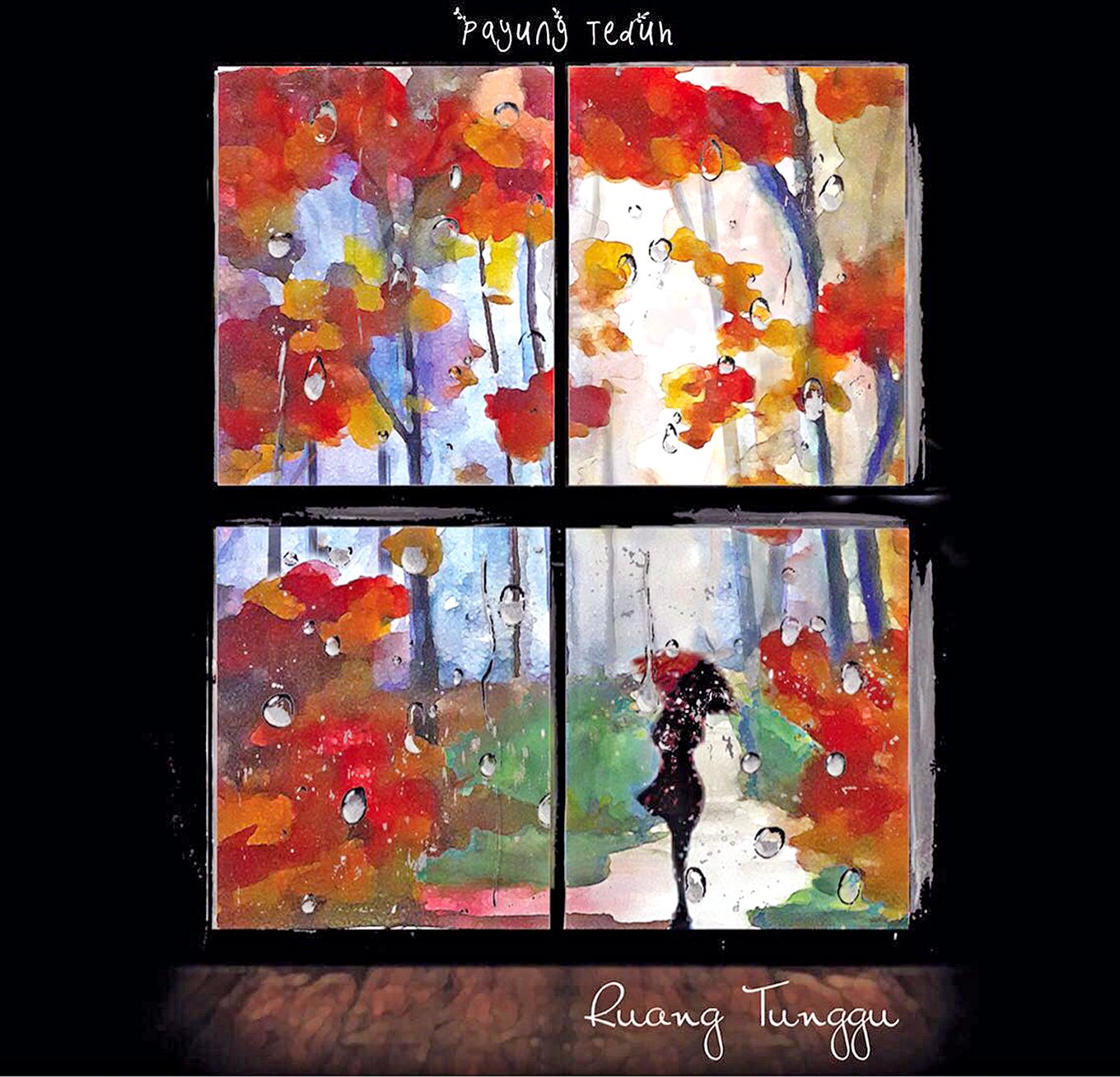Popular Reads
Top Results
Can't find what you're looking for?
View all search resultsPopular Reads
Top Results
Can't find what you're looking for?
View all search resultsAlbum Review: 'Ruang Tunggu' by Payung Teduh
Whatever it is that “Akad” hinted, Ruang Tunggu ain’t it. It’s not a surprising record, though the standards they set weren’t that high to begin with.
Change text size
Gift Premium Articles
to Anyone
S
ince its formation in 2007, there has never been any particular inkling that the band Payung Teduh would be the butt of a running joke. Their songs are inoffensive at best — coffee-shop acoustic folk, gliding at a glacial pace. But there it was: the trumpet on their chart-breaking single “Akad” (Engagement), the meme gracing the air near you.
“Akad” is exemplary in a lot of ways. One of them is the fact that it sounds like nothing the band — comprised of Is (vocals/guitar), Ivan Penwyn (guitalele, trumpet), Alejandro Saksakame (percussion) and Aziz Kariko (contrabass) — had ever put out. And what they’d put out earned them a following, a perennial sing-along.
This and the fact that KFC Music put out their third record, Ruang Tunggu (Waiting Room), telegraphed a certain kind of affront. They’ve amassed a certain kind of following whose boiling point is perhaps reliable inertia — whichever way they tinker with their music, there’s always “Resah” (Worry), “Menuju Senja” (Toward Dusk) or “Angin Pujaan Hujan” (The Rain’s Favorite Wind) for the crowds, for themselves.
But both the song and the album also mark the end of Payung Teduh’s current formation, as Is recently announced his imminent exit. Tighter schedules were to blame; recording had taken a backseat in favor of performing one too many shows. Ruang Tunggu is both the end and the beginning of Payung Teduh as we’ve come to know them.
Whatever it is that “Akad” hinted, Ruang Tunggu ain’t it. It’s not a surprising record, though the standards they set weren’t that high to begin with. The record still retains the band’s signature free-floating, occasionally adventurous strides. Take “Mari Bercerita” (Let’s Tell a Story), a duet with singer Icha Malia -- both vocals never reach above surface; the strings don’t do a lot of heavy-lifting.
But “Mari Bercerita” is a bum note on an album that’s not ruined by a lot of them. The second track “Di Atas Meja” (On a Table) is a heartbreaking, excellent song, with Is’ lyrics telling of a family — maybe his, maybe someone else’s — whose routine is damaged by uncertainties. Finding peace even through words — “Mengapa takut pada lara / Sementara semua rasa bisa kita cipta?” (Why fear desolation? While we can make our own senses) — glitter with hope. “Puan Bermain Hujan” (Girl Playing with the Rain) and “Selalu Muda” (Always Young) are also pleasing cuts, reminding me of Payung Teduh’s best selves.
Helped by super producer Steve Lillywhite, Ruang Tunggu sometimes breaks out of the band’s conventions. One great example of this is how they deploy the strings: “Sisa Kebahagiaan” (Remnants of Happiness) starts off unremarkably enough, before the strings pull me back into focus. They’re also there on “Akad,” making the song less of an irritant than it otherwise would’ve been. Knowing his mileage, Is also sings all the words with great ease, (at one point, he resorts to his chest voice on the closer “Kerinduan” [Longing]).
One of my favorite Indonesian folk albums of all time is Dosa, Kota dan Kenangan (Sins, Cities and Memories) by the Surabaya-based band Silampukau. Within that album, stories of Surabaya’s lonesome heroes are told with all the right cadence of folk music. Ruang Tunggu runs counter to Dosa’s realism or cynicism. Instead, Is’ lyrics are indebted to romanticism with beaches, dusks and other natural elements at his disposal.
These lyrics are also what largely animate Ruang Tunggu — they can be heartbreaking or just otherwise surprising in their poetic breadth. But music-wise, Ruang Tunggu won’t grip you all the way through the band’s last trip. One micro example of this is the album’s staggering closer: It first plays like a folk-jazz outing, with Is, the strings and guitar singing the band’s familiar lament. Nearing the song’s end, the drums turn erratic; they sound almost like a march.
An obituary of this version of Payung Teduh would include Ruang Tunggu as the band’s most surprising release. It definitely isn’t a bad album to go out on (I don’t think I’ve heard a bad word spoken of any Payung Teduh albums), but it does sound a bit frayed, as though stuck between two lanes. It’s unclear what the future holds for Payung Teduh, but their last march feels final, leaving behind a quiet legacy that few musicians have claimed victory for.











